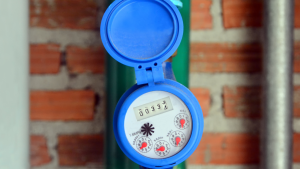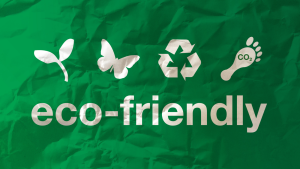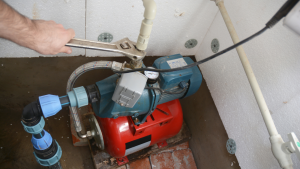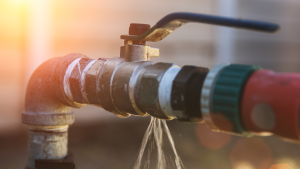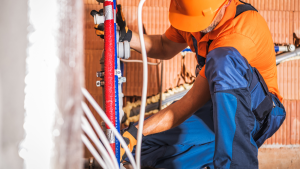Selecting the ideal pipe for your plumbing system is a crucial decision that impacts performance, longevity, and cost-effectiveness. With technological advancements and sustainability concerns shaping the industry, understanding the latest materials and their best applications is key to making an informed choice.
Key Takeaways:
- Choosing the right pipe type ensures durability, efficiency, and safety in your plumbing system.
- Each material has unique advantages and drawbacks, whether PVC, PEX, copper, or emerging eco-friendly options.
- Understanding their features and best applications helps homeowners and professionals make optimal decisions.
Top 10 Plumbing Pipes: Features, Pros, and Cons
1. PVC Pipe (Polyvinyl Chloride)
Features: Lightweight, non-toxic, and corrosion-resistant.
Pros:
- Easy to install and cost-effective.
- Resistant to corrosion and chemical damage.
- Smooth interior prevents clogging.
Cons:
- Cannot handle high temperatures.
- Becomes brittle in extreme cold.
Best For: Cold water supply lines, drainage, and irrigation.
2. PEX Pipe (Cross-Linked Polyethylene)
Features: Flexible, durable, and resistant to scale buildup.
Pros:
- Ideal for tight spaces due to flexibility.
- Suitable for both hot and cold water.
- Long-lasting and resistant to freezing.
Cons:
- Degrades under prolonged UV exposure.
- Requires specialized fittings.
Best For: Residential water supply systems and radiant floor heating.
3. ABS Pipe (Acrylonitrile Butadiene Styrene)
Features: Tough, lightweight, and impact-resistant.
Pros:
- Durable and easy to handle.
- Excellent for underground applications.
- Ideal for chemical drainage systems.
Cons:
- Limited to non-pressurized applications.
- Not suitable for prolonged sun exposure.
Best For: Drain, waste, and vent (DWV) systems.
4. Copper Pipe
Features: Naturally antimicrobial and highly durable.
Pros:
- Resistant to heat and corrosion.
- Long lifespan (50+ years).
- Enhances property value.
Cons:
- Expensive compared to other materials.
- Susceptible to theft.
Best For: Hot and cold water supply in residential and commercial buildings.
5. CPVC Pipe (Chlorinated Polyvinyl Chloride)
Features: Higher heat resistance than standard PVC.
Pros:
- Suitable for hot water systems.
- More affordable than copper.
- Resistant to chemical corrosion.
Cons:
- Becomes brittle over time.
- Limited to indoor use.
Best For: Hot water distribution in residential and commercial settings.
6. Galvanized Steel Pipe
Features: Strong and corrosion-resistant.
Pros:
- Handles high water pressure.
- Long lifespan in outdoor settings.
Cons:
- Prone to internal rusting over time.
- Heavy and labor-intensive to install.
Best For: Outdoor plumbing, irrigation, and fire sprinkler systems.
7. Cast-Iron Pipe
Features: Durable with excellent sound insulation.
Pros:
- Lifespan exceeding 100 years.
- Reduces noise in drainage systems.
Cons:
- Heavy and difficult to install.
- Expensive compared to modern alternatives.
Best For: Sewer systems and large drainage projects.
8. HDPE Pipe (High-Density Polyethylene)
Features: Flexible, lightweight, and eco-friendly.
Pros:
- Ideal for trenchless installations.
- High resistance to corrosion and chemicals.
Cons:
- Degrades with prolonged UV exposure.
- Not suitable for extremely high temperatures.
Best For: Underground water supply, chemical transport, and gas lines.
9. Eco-Friendly Composite Pipes (Emerging in 2025)
Features: Sustainable, durable, and hybrid-material composition.
Pros:
- Reduces environmental impact.
- Lightweight and highly resistant to corrosion.
- Energy-efficient manufacturing process.
Cons:
- Higher initial cost.
- Limited availability compared to traditional materials.
Best For: Green construction projects and energy-efficient plumbing.
10. Black Iron Pipes
Features: Strong with a protective black coating.
Pros:
- Extremely durable.
- Handles high-pressure systems.
Cons:
- Susceptible to rust if the coating is damaged.
- Heavy and difficult to work with.
Best For: Gas lines and outdoor plumbing applications.
Frequently Asked Questions (FAQ)
Q: How do I choose the right pipe for my plumbing system?
A: Consider water temperature, pressure, and whether it’s for drainage, supply, or gas. Evaluate material pros and cons based on longevity, cost, and specific project needs.
Q: What is the most durable pipe material?
A: Copper and cast iron are among the most durable, lasting several decades or even centuries in the right conditions.
Q: Can PVC be used for hot water?
A: No, PVC has low heat tolerance. CPVC or PEX are better alternatives for hot water systems.
Q: Why is PEX gaining popularity in 2025?
A: PEX remains a top choice due to its flexibility, ease of installation, and suitability for both hot and cold water systems.
Q: Should I replace galvanized steel pipes in an older home?
A: Yes, galvanized pipes tend to rust internally, leading to reduced water quality. Modern alternatives like PEX or copper are recommended.
Q: What pipe material is best for outdoor use?
A: Galvanized steel, HDPE, or new eco-friendly composites are the best choices, depending on the application.
Q: Are cast-iron pipes still used in 2025?
A: Yes, particularly in large-scale drainage and sewer systems due to their durability and soundproofing qualities.
Q: How can I maintain my plumbing system?
A: Regular inspections, prompt repairs, and proper cleaning can significantly extend the life of your plumbing system.
Final Thoughts
The plumbing industry is evolving, and selecting the right pipes can make a substantial difference in system efficiency and longevity. By understanding the latest trends and materials, homeowners and professionals can future-proof their plumbing investments.
For expert guidance and installation, trust BJC North Bergen Plumbers—your go-to specialists for high-quality, reliable plumbing solutions tailored to modern needs.


